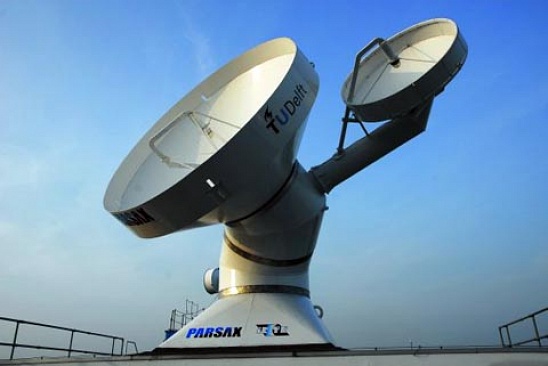Openings at MS3
Research Assistant in Radar Processing for Healthcare
Opening for: PostdocStatus details
| Status: | Closed |
|---|---|
| Announced: | 05 Jul 2023 |
| Closing date: | 31 Aug 2023 |
We seek a motivated Research Assistant to work on a 12-15 months funded project on radar processing for healthcare applications. The project is called ‘Under a Watchful Eye’ and is performed in collaboration with the Department of Psychiatry at the Erasmus Medical Centre in Rotterdam.
The goal of this project is to explore the feasibility of using contactless radar technology to automatically detect changes in vital parameters (e.g., respiration, heartbeat where possible) and actions patterns (such as an increase in agitation movement), potentially correlated with dangerous, self-harm behaviours of vulnerable individuals.
With current practices, monitoring of mentally confused patients mainly depends on repeated, manual observation by staff. Technology can help make healthcare safer, more patient-friendly by reducing their physical restraint, and less care-intensive. For this, radar sensing is attractive compared to alternative technologies such as wearable sensors or cameras, thanks to its contactless capabilities: patients do not need to wear, carry, or interact with devices (particularly advantageous in psychiatry); moreover, images of people or environments are not recorded (attractive for privacy reasons and for aspects of the mental health legislation).
In this pilot project, you will collect radar signatures (i.e., vitals and movements) of healthy volunteers and analyse them by formulating novel machine learning techniques to classify normal vs. potentially critical patterns. These scenarios will for instance mimic relevant information of clinical scenarios, including stepping out of bed, removing medical devices, and respiratory depression amongst others, but not directly involve at first actual patients.
During this project, you will work in the Microwave Sensing Signals and Systems (MS3) research group at the Department of Microelectronics of TU Delft. This group has extensive research facilities and excellent track record on the full pipeline of microwave and radar sensing, from hardware development to signal processing and automatic object classification. You will also collaborate with researchers at the Department of Psychiatry of Erasmus MC.
Your main responsibilities will be to:
- Formulate radar processing and classification algorithms tailored to the problem of human activity recognition.
- Experimentally validate the algorithms with data collections using short-range radars.
- Collaborate with other researchers in this project and participate in knowledge utilization activities and dissemination of research findings.
Conditions of Employment
Salary and benefits are in accordance with the Collective Labour Agreement for Dutch Universities (based on scale 10: € 2.960,00 - € 4.670,00). The TU Delft offers a customisable compensation package, a discount on health insurance and sport memberships, and a monthly work costs contribution. Flexible work schedules can be arranged.
For international applicants, TU Delft has the Coming to Delft Service. This service provides information for new international employees to help you prepare the relocation and to settle in the Netherlands. The Coming to Delft Service offers a Dual Career Programme for partners and they organise events to expand your (social) network.
Requirements
To be considered for this position you should have:
- A Master's degree in electrical/electronic engineering, computer science, physics, mathematics or other related fields.
- Knowledge or at least some interest in radar signal processing, preferably but not necessarily on classification techniques based on radar micro-Doppler data.
- Knowledge or at least some interest in machine learning, preferably for classification tasks.
- Programming experience in MATLAB/Python or C/C++, preferably in relation to indoor radar signal processing and applications.
- A curiosity-driven mindset, the ability to learn new things and a passion for (doing) research.
- An open-minded personality for cooperation with colleagues, even outside the department, and co-supervision of students.
- Good English language and communication skills (written and oral) in order to closely cooperate with colleagues and students as well as write project documents.
In order to apply, please use the official portal here
Contact
dr. Francesco Fioranelli
Associate Professor
Microwave Sensing, Signals and Systems Group
Department of Microelectronics
More information
